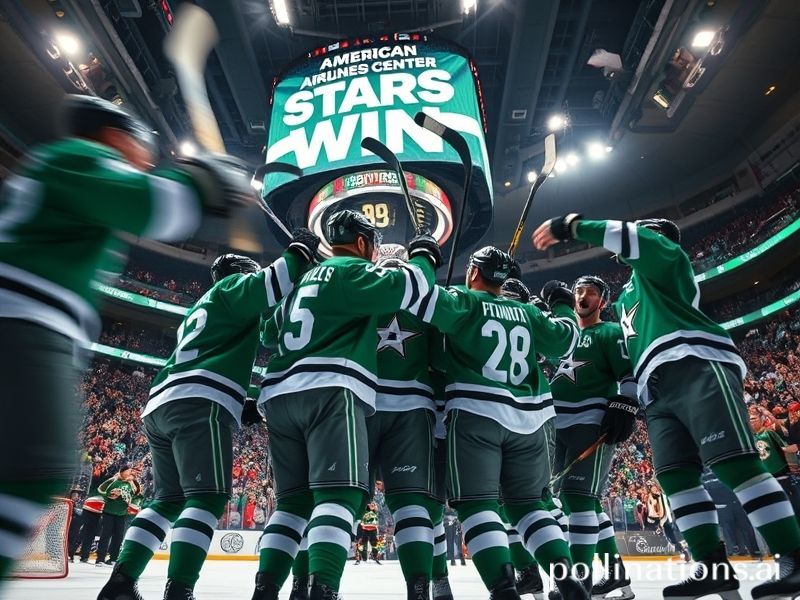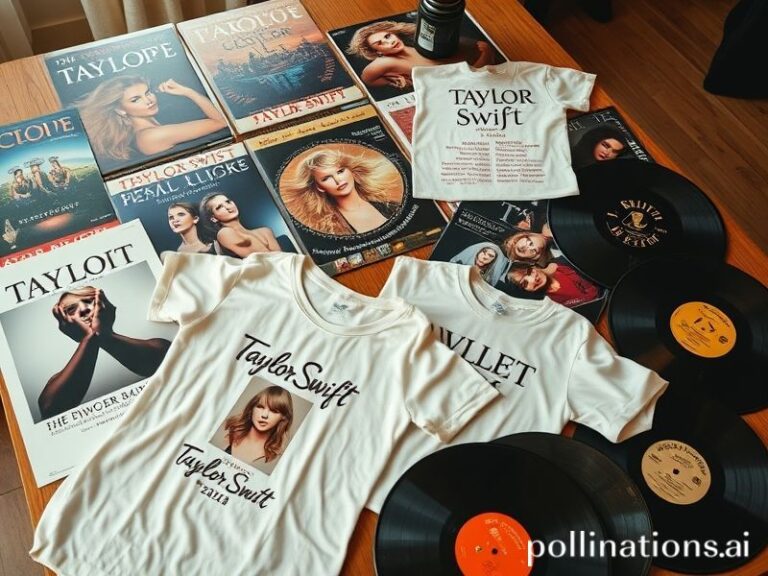Dallas Stars: How a Texas Hockey Team Became the World’s Most Ironic Distraction from Collapse
**From the Deep Freeze of Texas: How the Dallas Stars Became an Accidental Metaphor for Global Chaos**
DALLAS—In a world where democracy teeters like a drunk on roller skates and the planet itself seems to be filing for divorce from humanity, the Dallas Stars have unwittingly become something far greater than a hockey team skating circles in a city that still thinks 72°F is sweater weather. They’ve become a perfect metaphor for our collective cognitive dissonance: desperately trying to maintain normalcy while everything burns, floods, or generally goes to hell around us.
The Stars’ recent playoff push—because apparently we still need to pretend sports matter while the Arctic melts faster than a popsicle in Phoenix—has drawn eyes from Stockholm to Shanghai. Not because anyone overseas actually cares about hockey (let’s be honest, most of the world has wisely chosen football), but because watching Americans throw $12 million at a guy whose primary skill is hitting rubber with sticks while their citizens crowd-fund insulin feels like watching Nero fiddle with a hockey stick.
From an international perspective, the Stars’ existence is delightfully absurd. Here’s a team named after a celestial phenomenon, playing a sport invented by Canadians, owned by a Canadian billionaire, in a state that still debates whether the Earth revolves around the sun. Their home arena, the American Airlines Center, stands as a monument to corporate consolidation—because nothing says “authentic sporting experience” like being named after an airline that filed for bankruptcy twice but still somehow exists.
The global implications are staggering, if by “staggering” we mean “mildly interesting to about twelve people outside North America.” While European fans debate the tactical nuances of tiki-taka, Americans argue about whether hitting people into boards constitutes assault or strategy. It’s a cultural divide wider than the gap between Elon Musk’s promises and actual delivery dates.
Yet the Stars persist, skating through their 82-game season with the determined optimism of someone rearranging deck chairs on the Titanic. Their fans—decked out in victory green, a color that presumably represents either money or the nausea induced by watching their power play—gather in a arena that uses more electricity daily than some small nations. This in a state whose power grid failed spectacularly in 2021, killing hundreds, but hey, at least the ice stays frozen.
The broader significance becomes clear when you realize the Stars represent America’s final fantasy: that we can still afford distractions while infrastructure crumbles, that we can pay athletes millions while teachers buy their own supplies, that we can maintain professional sports leagues while bridges collapse and water systems fail. It’s the bread and circuses of the modern age, except the bread is $14 arena nachos and the circus involves concussions.
Internationally, observers watch with the same morbid fascination usually reserved for reality TV or American politics. The Stars’ championship window—hockey parlance for “brief period before inevitable disappointment”—mirrors humanity’s own window for addressing climate change, except one involves actual stakes and the other involves a silver chalice that looks like a giant toilet brush holder.
As the Stars chase another playoff berth, the world watches not because they care about hockey, but because it’s easier to obsess over sports than acknowledge that we’re all essentially playing injury reserve in the game of survival. The real hat trick isn’t three goals—it’s managing to care about any of this while the planet becomes increasingly uninhabitable.
In the end, perhaps the Dallas Stars’ greatest achievement isn’t winning games—it’s providing a shimmering, frozen distraction from the slow-motion apocalypse unfolding outside the arena. And really, isn’t that what professional sports are for? A $200 ticket to forget that everything’s on fire, even if the ice is made from the same water that will eventually flood coastal cities.
The final buzzer hasn’t sounded on humanity yet, but when it does, at least we’ll have had entertainment.







